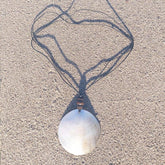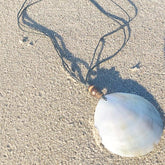What on Earth is Smell Training?
The lyrics to the Passenger song ‘Let Her Go’ pretty much sum up what it is like to lose one’s sense of smell:
You only need the light when it's burning low
Only miss the sun when it starts to snow
Only know you love her when you let her go
Like so many things, until it is gone, we do not realise how much we need it. Perhaps after a global pandemic we might at last begin to no longer take anything for granted?
I had Covid-19 in October and lost my sense of smell and taste for 24 hours, giving me a tiny insight into what this must feel like. However, I was a lucky one as my senses came back. Some friends and colleagues have not been so fortunate and are suffering the far-reaching effects on their quality of life.
Anosmia sufferers who are all too familiar with this, often talk of feeling isolated and cut-off from the world around them, experiencing a ‘blunting’ of the emotions. It is acknowledged today that our sense of smell has a profound impact on our mood, memory and emotion. The loss of smell can even affect one’s ability to form and maintain close personal relationships which can, in turn, lead to depression.
Some people with COVID-19 lose their sense of smell because the virus damages the olfactory receptor nerve endings or supporting olfactory cells within their nose. It is not yet known whether the damage will be permanent, and it is looking like potential regeneration could take up to 18 months. Some people do partially recover their sense of smell and taste but instead describe distorted smells and tastes.
What can we do about this?
Living with someone who, post COVID-19, has a profound loss of smell and taste, I knew we needed to find out what we could do to improve the situation.
Together we researched it and discovered the positive impact of ‘smell therapy or training’.
We read about consultant rhinologist Peter Andrews who has relaunched the olfactory smell clinic at the Royal National ENT and Eastman Dental Hospitals to investigate patients and health care workers who have been suffering with smell and taste loss following COVID-19. The research is part of an international study and leads on from the successful olfactory PhD programme currently ongoing at the UCL EAR Institute.
Patients are encouraged to sniff a selection of items with clear and distinct aromas including coffee, mint or rose essence and chocolate. They are asked to identify and differentiate between them to help them ‘relearn’ smells. It is thought that smell training may help the regeneration of the olfactory receptor neutrons.
The idea that our sense of smell and taste can be improved via training seemed, at first, rather strange, but the more we thought about it the more it made sense. If you can go to the gym, lift weights and improve muscle mass and tone why not spend time re-training your olfactory senses?
We also discovered ‘Fifth Sense’ an amazing charity dedicated to people suffering from this little- known condition.
As Duncan Boak, the founder of the charity Fifth Sense explains: “In 2005, as the result of a severe head injury, I lost my sense of smell. Before then, like most people, I took this sense for granted and had little understanding of the contribution it made to my quality of life”.
Based on the research we had done we got going on regular Smell Training and have been doing this every day since mid- December. To date we can report some positive effects as he is now able to easily identify the four essential oils that we used in the more formal smell training and very occasionally he now gets a faint whiff of a smell in general everyday life.
The senses of smell and taste are closely linked, and it is recognised that by working first on your smell sense then taste will gradually return alongside.

So, what exactly is Smell Training and how do you do it?
Smell training is actively sniffing the same four scents twice a day, spending around 20 seconds on each scent (10 seconds on each nostril) and really concentrating (being mindful) on what you are doing. Ask someone in your bubble to ‘test’ you by holding the oils one at a time carefully under your nostrils while you close your eyes. It can be very reassuring as you begin to identify the different scents.
It’s that easy. It’s safe, it’s recommended by doctors, and anyone can do it.
You don’t have to buy oils to smell train – you can use items you have at home and follow the SmellAbility Toolbox guide from Fifth Sense.
However, if you prefer to have a dedicated set of scents, you can use essential oils, which come in a wide variety of aromas.
Essential oils are suggested because they are a stable source of odour that can keep for weeks in sealed vials/jars. The oils themselves don’t have any sort of healing properties, but they do have shelf life which can be helpful in having pre-prepared resources.
Your Smell Training Kit:
It is advised to use oils that have very different scents from each other. You can do this by choosing oils from different Aromatherapy categories.
We recommend that you pick one essential oil from four different aromatherapy categories of the six listed below:
Flowery – Lavender, Jasmine, Rose, Neroli, Ylang Ylang
Earthy- Patchouli
Citrus/Fruity – Lemon or Tangerine
Spicy – Patchouli or Ginger
Resinous – Frankincense or Myrrh
Camphoraceous/ Minty- Eucalyptus, Tea Tree, Peppermint
You can find all of the oils above here.
If you wish to research further the Aromatherapy essential oil families click on the link: https://escentualweb.com/essential-oil-aroma-families/
Other useful Tips…
You can also use your other senses to help and use every opportunity to smell train whenever you can – when you eat an orange, use your senses of touch and sight to help you to recall memories, when you go for a walk, enjoy the breeze and look at the detail of the flowers whilst you take a sniff. All of this will help your regular, more formal smell training.

At Rainbow Life we would recommend that smell training should not be viewed as a substitute for medical examination and treatment, where such is advised and available, but rather as an accompaniment to any prescribed treatment.
If you wish to read more about Fifth Sense click on the












Leave a comment
All blog comments are checked prior to publishing